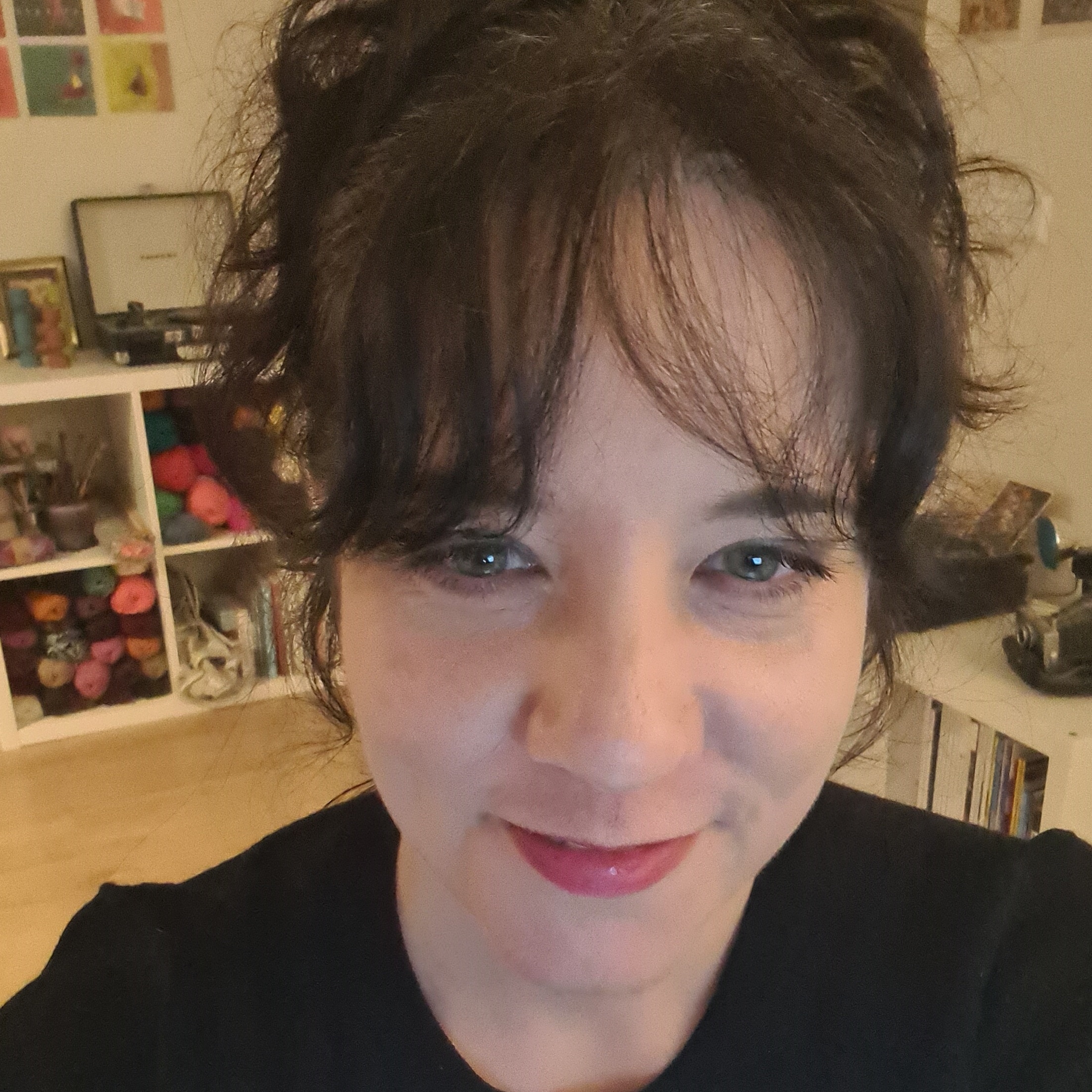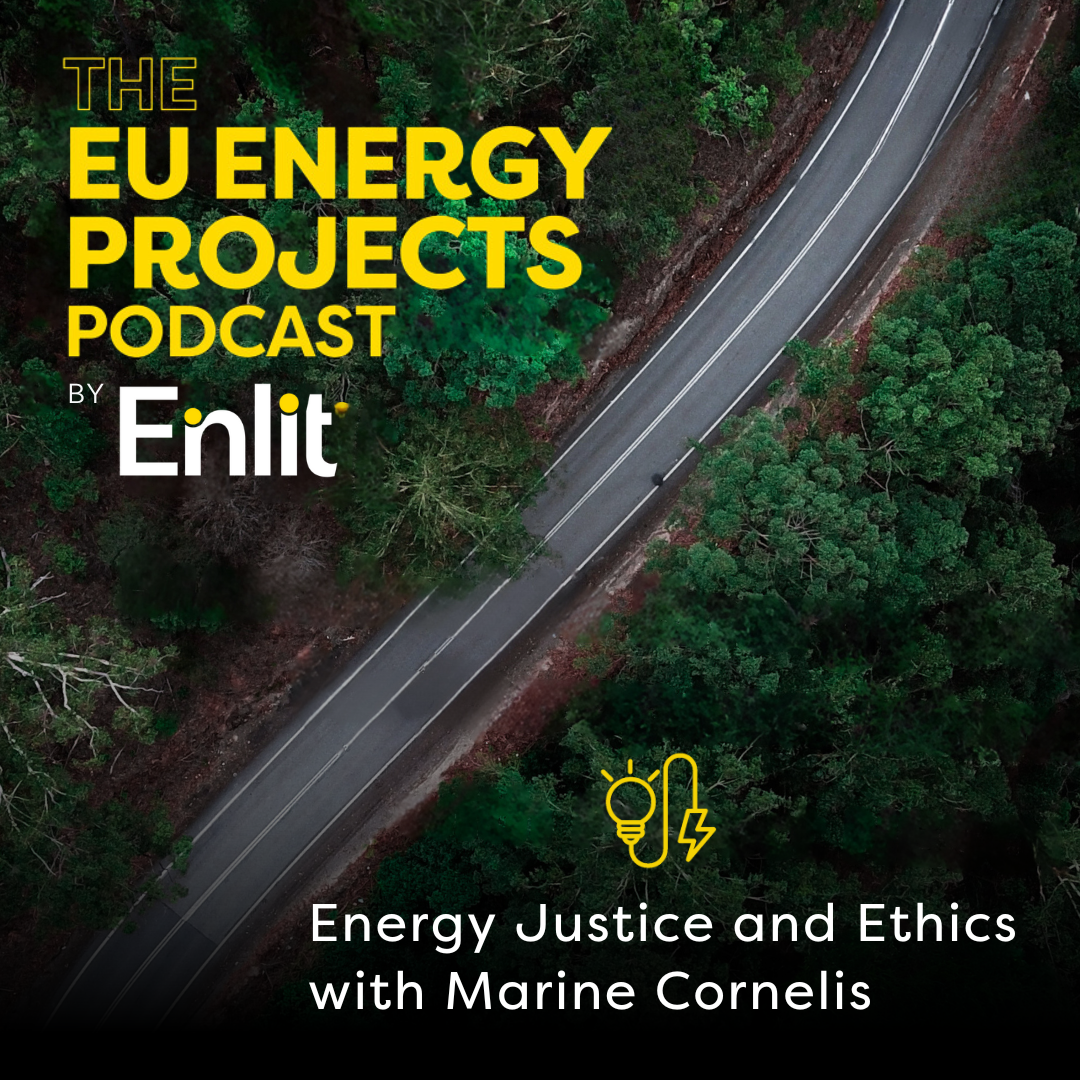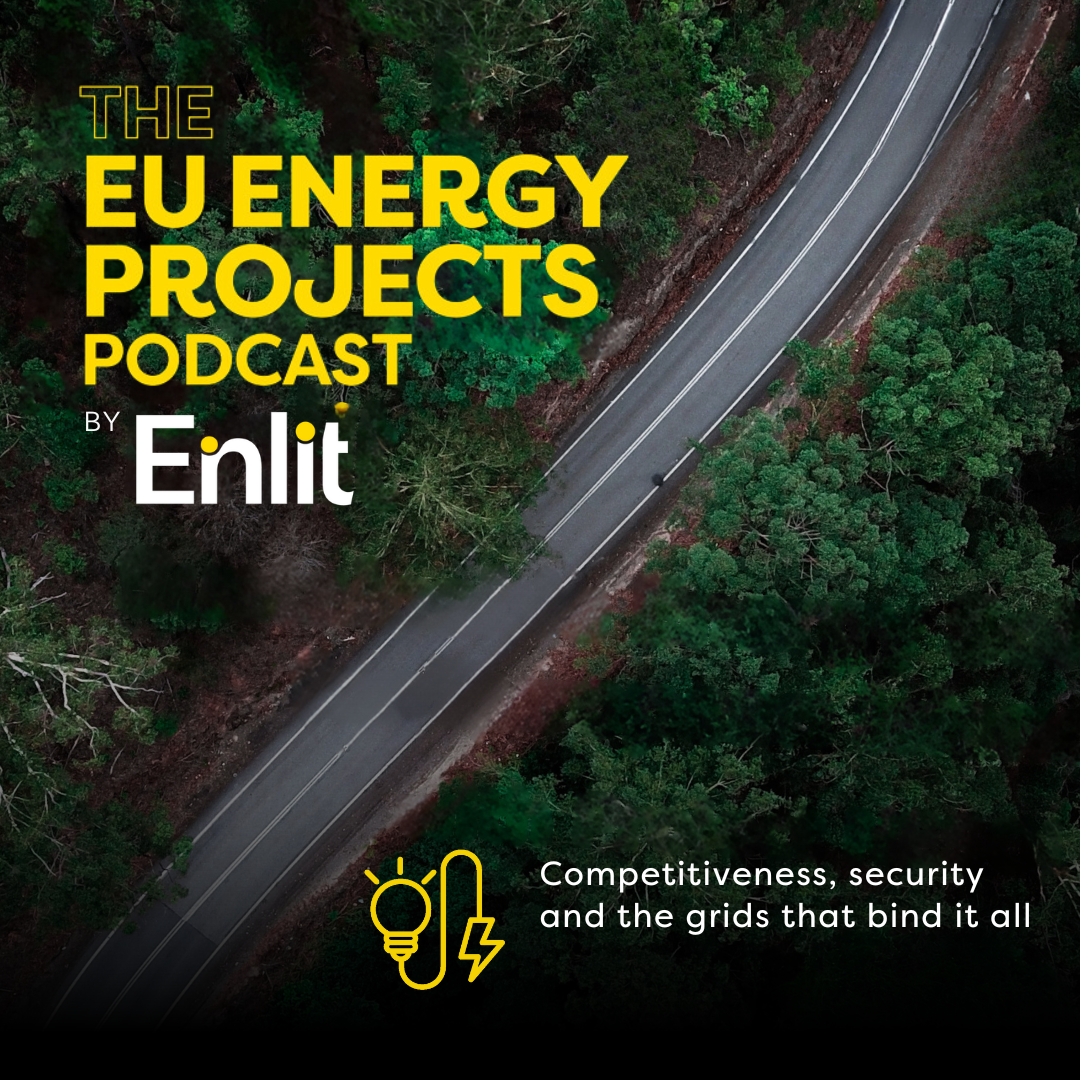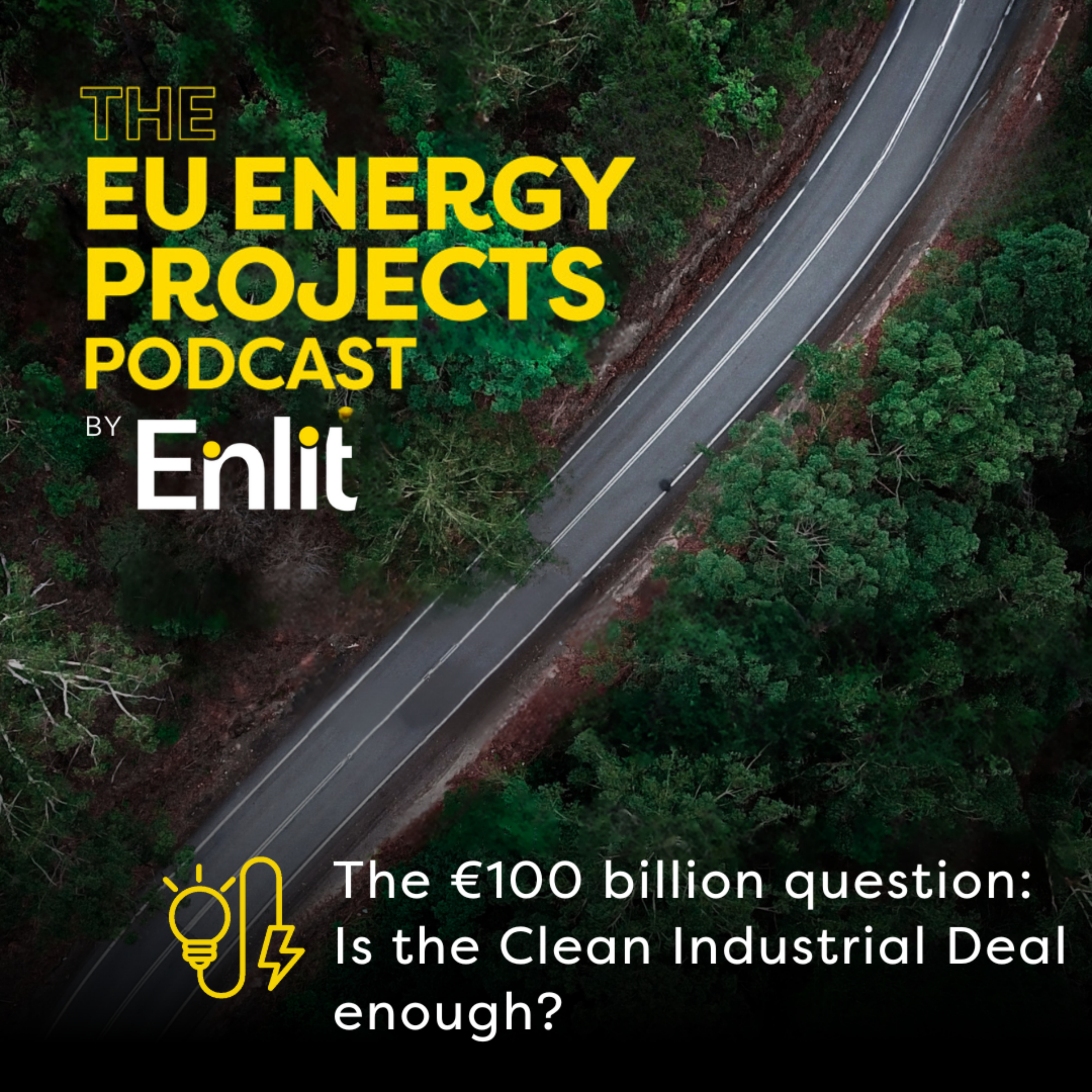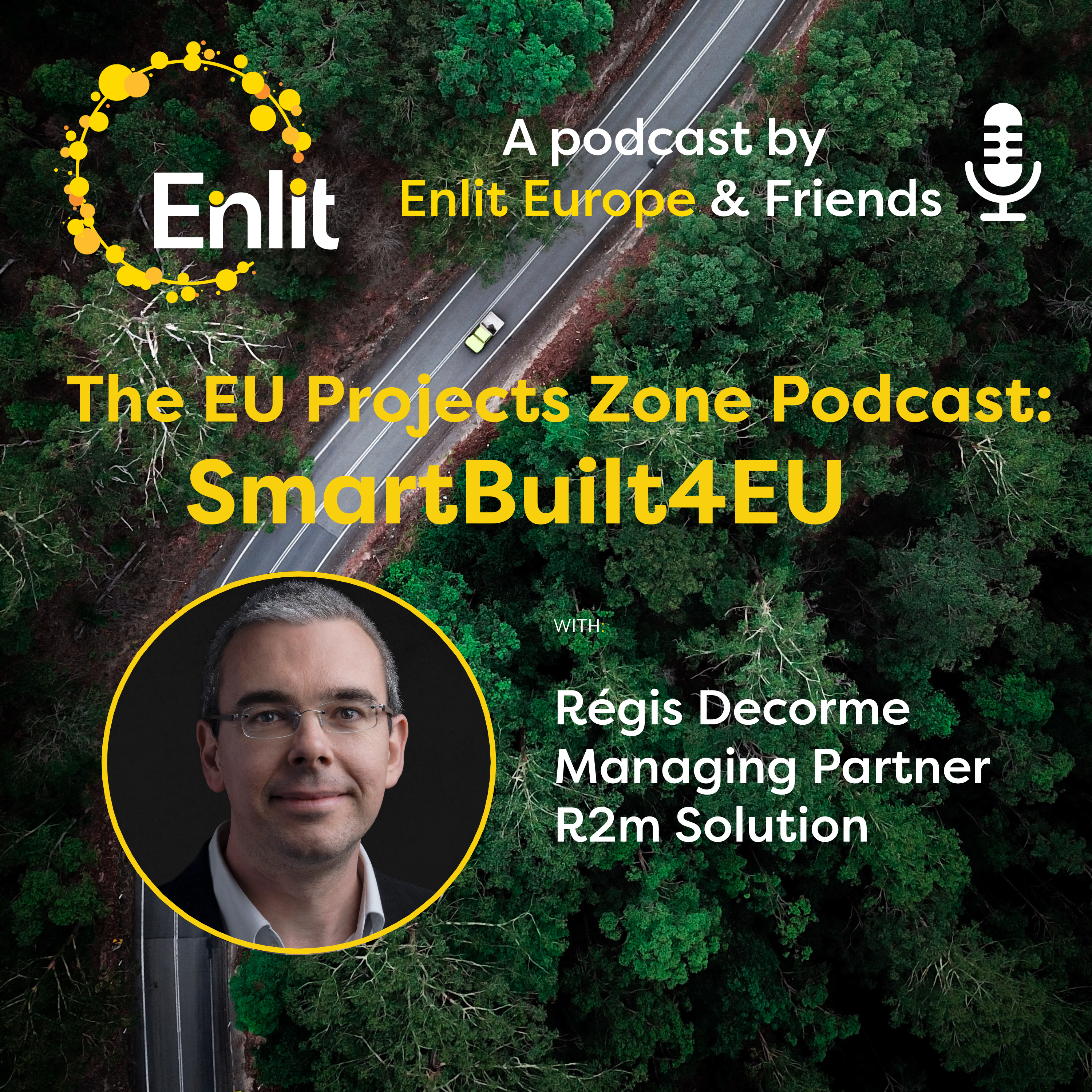Episode Transcript
[00:00:05] Speaker A: Welcome to the EU Energy Projects podcast, a podcast series from Enlit and friends focusing on the clean energy transition for the European Union and the EU Commission funded energy projects that will help us achieve it. My name is Areti Daradimu. I am the editor of the EU Energy Projects podcast, and your host. Marine Cornelis, is the founder of Next Energy Consumer, a policy consultancy focusing on the social aspects of the energy transition.
I've had more than once the opportunity to meet and discuss with her in various events around Europe, and I know her as a fervent advocate for energy justice and sustainable development, and that she proves every other week in her podcast series called Energetic. But if someone asked me to describe her, I would say that she's a woman who tries to build bridges and infuse ethics in sustainability.
During Enlit Europe 2023 in Paris, I had the pleasure of moderating a panel discussion focused on the European Sustainable Energy Week, a policy conference organized by the European Commission. Marin participates in various roles in this event, and so do we at enlit media. Given the fact that the conference is just around the corner, I thought it would be a good idea to have a chat with Marin in advance.
Welcome, Marin.
[00:01:33] Speaker B: Thank you so much, Areti, for the very, very nice introduction, and thank you for the presentation. It's an honor.
[00:01:40] Speaker A: It's a pleasure, believe me. A very interesting thing that we're trying for the first time in this podcast series. I don't know if you've done it in your podcast before, Marine is that we're gonna have. This episode is like the first of two episodes that we're going to have, more or less on the same topic of sustainable energy week, sustainability, ethics, etcetera. The first installment is going to be at the EU Energy Projects podcast powered by enlit and friends, and the second is going to be in energetic.
[00:02:11] Speaker B: It's my podcast. It's been running for three years and more than 50 episodes. We've been touching exactly on those topics that are related to the ethical dimensions of the energy and climate transition and how people can actually engage and make a difference. And really, one of, let's say, the particularity of the podcast that I've been setting up is that we try to give a human face to the energy and climate transition. I strongly believe that if we only keep and stay at, let's say, the project level, at the technical level, at the business level, we will never reach people's hearts. And actually, to make sure that people are engaged and know that they can also make a difference, we really need to share more personal stories. So let's say that it's about how people can make a difference in the energy and climate sphere. And I'm really looking forward to having you at it.
[00:03:08] Speaker A: So are you looking forward to Yousef this year?
[00:03:11] Speaker B: Absolutely. I'm always looking forward to Youssef because it's really a great opportunity to confront with friends, partners, potential clients, you know, potential project partners as well, and, you know, to hear about the trends and the topics that have been on every, let's say every people's mind work more or less closely to the European Commission or european projects as well. So it's really, really a good opportunity to learn and really meet and greet other people.
[00:03:43] Speaker A: Absolutely. I agree with you. But what do you think of the umbrella topic, net zero energy solutions for a competitive Europe is actually compatible this to have net zero energy solutions and a competitive Europe.
[00:03:57] Speaker B: I think it's a really interesting topic because it means that the European Commission has gotten from really different issues, like from putting consumers at the center. So building, shaping the energy systems in a way that might be a little bit more consumer centric, to discussions around sustainability around also recovery and resilience after Covid, etcetera, to now a discussion on how to accelerate the industrial transformation in Europe, but in a fair and inclusive way. And I find it quite interesting because Europe is really positioning itself as a leader in this sense with the idea of a just transition behind. But now it's really about delivering. And you know, it also comes like this edition of the UCEF also comes just after the european elections. And one of the biggest, or maybe the biggest topic that happened over the past five years, given also the pandemic and the cost of living crisis and so on, was really the European Green deal, how to set up the normative framework to make sure that Europe becomes more resilient and shows the way regarding the energy and climate transition in the years to come. But now it's about delivering and, you know, a huge package of policy measures have been adopted, but now it's about delivering. And we will see also with the kind of trends at the open parliament how this will take shape. So it's also very good to have something so practical because this way, I think it will also have a huge influence on european commission programs for the years to come.
[00:05:28] Speaker A: Exactly. You mentioned the european elections, and this is actually an important topic and an important matter. Do you think that after the elections we will have, let's say again, a leadership that will be pro net zero? We both live in Europe. We both read the news. We both know that some parties that are against the net zero policies of the European Commission are quite high in the selection of the public.
[00:05:56] Speaker B: Yeah. So let's say that some parties that are not totally pro. Just pro Europe in general. Yeah. Parties that don't seem very pro net zero transition are quite high in the polls. And that's a fact. That's a bet. I really have more like a question also for you and for the listeners now is how informed are they about the opportunities that the net zero transition brings? Because one of the key aspects that we have to take into consideration and that policymakers will never be able to avoid is that the climate change, climate crisis, the climate is changing and we have to adapt to it. And it means that we have to adapt our industries, we have to adapt our competitivity, but we also have to adapt the way people move, eat, consume their energy and so on. So it's not something that you can actually decide to address or not. The thing that actually concerns me is that many of, let's say, the parties that don't demonstrate an appetite for a net zero, they tend to be kind of overly optimistic, presenting to, let's say, the people who would like to be maybe tempted to vote for them that climate change is not real. Actually, it is. And, you know, the cost of inaction is way higher than the cost of action. So it's actually good for the economy to move on, and it's good for the people to move on and build more resilient societies. It's actually a win win situation. So I'm kind of sure that they will have to be a little bit more real. And instead of big words, they will have to adapt to something.
[00:07:39] Speaker A: I hope you're right, because this is what we were also discussing during the discussions about Brexit, and we were wrong. In the end, Brexit did happen. I'm seriously hoping that we will not be in front of a surprise again.
Did you know that Enlit has another podcast? The energy Transitions podcast is a broad ranging, bi weekly podcast about the people accelerating the energy transition in Europe and beyond. You can find it on Spotify, Apple, or wherever you enjoy your podcasts.
I want to circle a little bit back to what you said about diversity and how important it is in the net zero topic and competitive Europe. You said that embracing diversity is fundamental to the energy transition and not just the trend. You've said that many times. Why is that? Why does gender, for example, play a role in the energy transition?
[00:08:39] Speaker B: Okay, so let's say something very clearly, like business as usual is not good for the planet, and it's not good for the economy either. And it's not good for the people. At the end of the day, we are living unprecedented times where we have like a global problem that will lead to global issues, from draft to famines to also mass migration issues and so on. So we need to overcome that through something called collective intelligence, right? And to build this collective intelligence, we need people with different mindset. So if we still do policies, or if we still think and engage only with the same kind of people, and usually 50 something men, well educated, middle class and so on, and why we won't find the solutions that actually make a difference for more people. Right? So that's why we need to be able now to engage with different segments of the population, many people who have been overlooked, maybe people who have been doing things in a kind of a different way, who have been experiencing the existing systems, the existing infrastructure, in a way that is different to what has for probably too long been considered like average. And average actually corresponds to white men in their fifties. You know, even the white men in their fifties is going to age like 2050. We are like all the objectives, climate objectives, energy objectives are 2040, 2050, it's just around the corner. And you and I, we will be already quite old in 2050, right?
[00:10:19] Speaker A: Absolutely.
[00:10:20] Speaker B: We also need to kind of consider that as steps forward, to kind of say, okay, so how will I experience that as I am aging? You know, I'm a woman, I'm in my thirties, I'm a mother of a toddler. But still, in 25 years, my life will be pretty different. So how do I build a system now that also makes sense in my future as well? Because the infrastructure, when we talk about energy, we talk about huge infrastructures. Even if we talk about installing solar panels on our roofs, it's so huge, right? It's still something that you install for the next 1015, 2025, 30 years. So it's really important that we don't build stranded assets or we don't build things that won't be relevant only in a few years time. So that's why we really need a diversity of perspective. And this diversity of perspective comes with a diversity of mindset. So a diversity of background, the lack.
[00:11:16] Speaker A: Of that can lead to forms of discrimination. I read an article that you wrote for the European Sustainable Energy Week, and you mentioned intersectionality. Why do class, race, ethnicity, sexual orientation and other aspects intersect and lead to complex forms of discrimination?
[00:11:36] Speaker B: So it's really a super interesting and important topic. And I'm really glad that the open sustainable Energy week gave me the floor for this one and also promoted on different platforms, because I think it's a topic that also in Europe, we tend to overlook. That's, let's say, an issue that I know at the European Commission people are very aware of. Like, we tend to be very like minded people. We tend to live in some kind of a bubble somehow. So it's very important also to kind of break those silos and acknowledge at least that there are some diversity issues. But the diversity issue is not only visible by the gender, because that's really one of the first noticeable things. They are still panels or events with only men. I mean, that's really one of the things that is no longer, it's not acceptable anymore. But then if you just scratch a little bit under the surface, maybe there are underlying issues that you don't really see whether it is. So, as I said, the gender, it's maybe one of the most visible. Then you have race, then you have the class. To be able to be in Brussels as a student, many, many, many organizations, they still don't pay their interns. So it means that if you don't come from a well off family, you won't be able to intern for too long, so you won't be able to stay in the Brussels policymaking sphere. Right. So that's really one of the, let's say, the very concrete actions, the race issue that comes from maybe even further in the educative process in the education systems throughout Europe, that people of color are not given the same opportunities as young white people. Those are really systems that you can't, I mean, you see only the tip of the iceberg at high level polisty sphere that is Youssef and all these kind of spheres. It really has to be like an intersection that comes from really behind. Interestingly, I've been noticing in my work, for instance, on energy poverty, that very often the question of race or ghettos that you can find in some areas, you know, I'm french, I know what the kind of bon lieu issue is, but I've never seen any organization focusing on addressing energy poverty, addressing housing retrofits, making sure that energy communities are built within the communities that are considered Benlieux. So on the outskirts of big cities, you know, I've never seen anything like that. But that's hugely problematic because it means that a huge part of the population is excluded from what is the best way for our societies to be resilient to climate change, to have better economic opportunities, to have a better chance of the energy transition, to be an occasion, an opportunity to level the playing field between the different, let's say, segments of the society. And if we take another issue, which. So earlier I mentioned the age, which is something that we tend to overlook, of course, we always seem in our prime, and it's really hard as human to think about the future and how we may not be as able physically as possible. But just take, I don't know if you have nephews or niece who are teenagers. They are completely TikTok native, right?
[00:14:46] Speaker A: Yeah.
[00:14:46] Speaker B: I feel totally useless.
[00:14:49] Speaker A: Yes. I don't understand. Sometimes I really have unknown words when they talk. Yeah, absolutely.
[00:14:54] Speaker B: Absolutely. So those things, it's really around us, but there is such, already such a divide between them and us. And we are not old. Like, by no means we are old.
[00:15:06] Speaker A: Well, by no means we are like very old, but whatever.
[00:15:11] Speaker B: Yeah, exactly. So we really have to think, how can we provide or infuse and design some measures that can actually make a difference at the end of the day, that can be accepted by everyone, that everybody can really make use of. If we keep on designing apps that are not user friendly, nobody will use them. Right. And if we design policies and measures that where you really need a high level of fluency in the vocabulary, in the language and you don't speak to a certain part of the population, if you think of relief, because we will face even more climate issues, from fires to floods, etcetera. There are many organizations that support people who have been affected by fire, floods, etcetera, which are religious organizations. And some of those religious organizations, they don't accept trans people, LGBTQI people as well. They don't feel safe with those organizations. So it is a huge justice and ethical problem. Right. So that's why you really need to have in mind many, many, many, all the facets of the population. And that's, again, why you need to have a proper discussion involving different kind of people. This is why, I mean, diversity has to be considered one of the D's of the transition. Right.
[00:16:31] Speaker A: I agree with you, and I do think that it is a very important aspect of our future, but. But I am a little bit reluctant. On one thing, all these discussions are happening also within a bubble. So, for example, I know that the European Commission has some really good initiatives regarding equality and everything, like the commission's equality platform for the energy sector or the European Solar Sectors Diversity award that you also mentioned in your article. There are these initiatives and there are people in the commission and in associations, in companies like yours that discuss these things. But I don't see the religious, let's say, sects in this discussion. I don't see, for example, people that live in areas that are a little bit isolated and maybe they're not that open. They haven't been opened to something different. I don't see them as part of the discussion. And if we don't discuss with them and understand what their fears are, how are we going to explain that their fears are not substantial, have no roots.
[00:17:37] Speaker B: Absolutely. Absolutely. And going back to what you said about the political parties that are not really open to the net zero transition. Right. Because it's actually something that the most progressive part of the society tend to kind of be a little bit snob about the concerns that other people have. And it can translate into nimbism, you know, not in my backyards. And the other day I listened, I read another one, absolutely nowhere near anyone.
The acronym was banana. Build absolutely nothing, anywhere near anyone. Banana. Right. You just stop. You just stop and you let things happen. Right. But you really don't want that kind of banana to happen because it means that you don't build your infrastructures and it's going to really hit you in the face once the issues are coming. So it's really important to engage, really like have this kind of transparent, open dialogue as well and be sure that you come not from that. Policymakers also able to address those fears.
[00:18:39] Speaker A: Exactly. And I think that a way, let's say, to address those fears and have an open discussion, maybe networking, are the EU funded projects that EU funds. And I know that you are participating in one that is very, I mean, you participate in various. But there is this one that really caught my attention. Lip, r e or I don't know if I'm pronouncing it correctly. Please, please correct me.
[00:19:04] Speaker B: Yeah, yeah. It's lipre.
[00:19:06] Speaker A: Lipre. And this has a sociological aspect that is kind of, in all the years that I'm working with EU funded projects, this is something relatively new. Would you like to please elaborate and explain what this is?
[00:19:19] Speaker B: So LiPRe is really an ecosystem of projects being developed between the European Union and the African Union. It's really, really interesting because you have this kind of exchange of knowledge of practice with african organizations, from universities to research centers to also utilities and so on, about, it's really about co creating some solutions. And in particular within this huge ecosystem of project, I've been part of one in particular, the work package number 15, which is called Eureka. Which focuses on smart grids and grid digitization in two african countries, one in Burkina Faso and the other one in Madagascar.
[00:20:01] Speaker A: Are you going to visit Burkina Faso? Because that's a little bit. That's dangerous, let's say.
[00:20:07] Speaker B: Yeah, I was there in January 2022, just before the military group. And unfortunately, I haven't been able to come back, but I still made really, really, really good contacts and I've been supporting since then a youth led organization that's called Legion de l'Energie. And they are doing an amazing, amazing job. My job within this project is really to make sure that the solutions, like the very tech solutions that are being developed to optimize the grid, to make sure that there are less blackouts, are actually delivering for the people. So it's really been about trying to assess the policy, the policy landscape, try to talk also with the various decision makers and then deliver with the people. And let me tell you about one example in particular. So one of the key feature is to install in walk at Wu, which is a, the capital of Burkana Castle, is to install some smart devices to monitor the load and make sure that instead of having general blackout, you have, like, more balanced supply and demand balance and, you know, have basically some appliances that are shut down for a few minutes or even seconds. It depends. So it's load shaving, right. And I'm sure your listeners know what load shading is.
[00:21:23] Speaker A: Absolutely.
[00:21:24] Speaker B: So during one of the project meetings, I was chatting with my colleagues and they were like, oh, but nobody wants that to be installed in their home. Nobody wants that because they say that they don't want us to monitor what's in their home. I was like, did you really say the word control what's in your home? Did you really say that? I mean, would you like somebody to control what's, what's in your home? Would you like to have big brother in your home? And oops. They realized that control was never the right way to approach people. That monitor, instead, was the right way. So that was really, you know, this kind of trying to infuse within those big brains, within those engineering mindsets, this kind of more human touch. And that has been really my job over the years, to try to make sure that when we talk about energy, when we talk about the energy transition, we talk about something that we is concrete for people that is as simple as turning the light on and off. Right?
[00:22:26] Speaker A: Marine, your initiatives warm my balkan mediterranean heart, let me tell you. I would like to ask you one last question. During sustainable Energy Week, this year 2024. Where can we find you? What are you going to do?
[00:22:41] Speaker B: So I will be there at least Wednesday and Thursday. And on the Thursday, I will be moderating the sunfall conversation. It's really an interesting project because it's kind of taking an american project developed in New York City. It's bringing it to Europe, and we will see how it unfolds and how the impact it has on people affected by energy poverty. And what is really interesting is that we will make the conversation as dynamic as possible. And, you know, I'm really glad to be involved in that particular conversation because for once, we won't have only european people. We're also going to get somebody from New York paid.
[00:23:17] Speaker A: Sounds great. Well, we'll be there. I hope that you all will be there also, because if I'm not mistaken, it's not only live, it will be also recorded and streamed, etcetera, right?
[00:23:28] Speaker B: Absolutely. Yes.
[00:23:29] Speaker A: Perfect. You will find the links at our website for this and other sessions. Thank you, Marin, very, very much for this conversation.
[00:23:37] Speaker B: You're very welcome.
[00:23:38] Speaker A: Meriti, it was a pleasure and thank you all for listening.
Youve been listening to the EU Energy Projects podcast, a podcast brought to you by enlighten friends. You can find us on Spotify, Apple and the enlit World website. Just hit subscribe and you can access our other episodes, too. Im Areti Daradimo, thank you for joining us.
